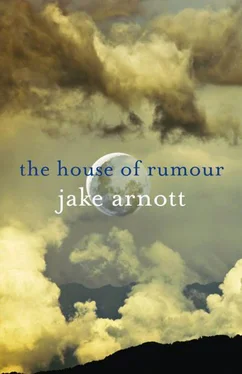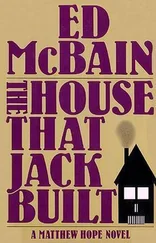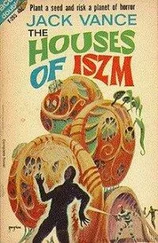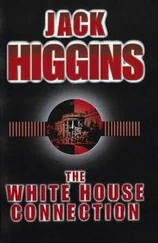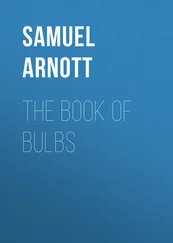Hess nodded up towards Tower No. 3, where a Russian guard had been watching them both.
‘After all,’ he went on, ‘the Soviets are ahead of you with this space station. Is it only for scientific purposes? It could be a launch platform for atomic weapons.’
He stopped and turned to the commandant.
‘They’ll never let me go, will they? Like they did with Speer and the others. Tell me the truth, Commandant. I know you had dinner last night with one of their generals. What did he say?’
‘He told me that we Americans treat war like a game of cowboys and Indians,’ he replied. ‘He said that his country had lost over twenty million people in the war. He says that you flew to Scotland to make peace with Britain so that you could attack the Soviet Union on a single front.’
Hess shrugged.
‘Well,’ he sighed, ‘that’s as may be. But it is you who must conquer space. Not those barbarians. You are the future. This Russian general, he is right in one respect. Americans have a wonderful naivety, this simple and marvellously misguided conception of culture. You somehow imagine it to be concerned with growth rather than decay, which is what we Europeans are condemned to understand.’
He wandered back through Speer’s garden up to the main cell block.
‘This is surely the reason that you should not only inherit the world, but colonise new planets also.’ Hess turned and gave the American commandant a mischievous smile. ‘We have given you the means, after all.’
Back in his cell he lay on his bunk and scanned the eight square yards of his room. This was his chariot now. His cockpit, his space capsule, with its vaulted white ceiling, its green and cream walls. O God, I could be bounded in a nutshell and count myself a king of infinite space — he had once learnt this line of Shakespeare — were it not that I have bad dreams.
Above the bed were the maps and photographs from NASA tacked to the wall. The moon, yes, that had been his that night. A sign from heaven, full and bright as a searchlight. But it had been a lure to trick him. He had been obsessed by the moon, his own space race. Hitler was right to hate it so. It was inconstant, deceitful. Insane. Yes, thought Hess, the moon. That had been the cause of his madness.
ROCKET SCENTIST KILLED IN PASADENA EXPLOSION. The front-page headline in the Los Angeles Times was stark and strange, like comic book arcana, past prophecies of pulp magazines and science fiction B-movies. Cosmically terse, like a one-line horoscope. I knew at once that it was about Jack. But the real shock was that there was no shock. I’d somehow always known that this was going to happen. I had long since given up on the supernatural but in that instant I knew that I had always had a prescient sense of Jack’s end. And I couldn’t bring myself to read the news. I had to adjust to this moment. So I kept my gaze up and scanned the masthead: Late News, 9 a.m. Final, 18 June 1952 : the exact point in time that I was finally free of Jack Parsons.
I remembered something he had told me about rocket science. When they brought the captured German V2 missiles back to America, they took them apart to see how they worked. They call it ‘reverse engineering’. And I knew that that was what I would have to do. I’d have to take it all apart and put it back together again.
A photo of Jack by the headline. A blurred headshot: a pattern of dots tracing the perfect curve of his cheekbones, his soul-deep eyes. Even in inky pointillism he looked absurdly handsome. My dark angel. My bright demon. The most beautiful man I ever knew, cursed with a mercurial genius and a sublime gift for enchantment. No one could blame me for falling in love with Jack, for making a fool of myself over him. And no one could blame me for betraying him in the end. Sometimes you have to kill love or it will destroy you.
When we began our strange affair I thought that I could deal with the fact that he was with somebody else. Jack had so many lovers, it was ludicrous to hope he would be faithful only to me. And for a while I imagined that I was above all the petty jealousies of life. I was on a mystical path, after all, on my way to a higher order of enlightenment, which he had become master of. Sexual freedom was to be a sacrament to this greater love. But I soon learnt that it wasn’t enough. That it wasn’t freedom, rather some kind of enslavement. I felt lost. Life had seemed a series of adjustments I had never been able to keep pace with. But the real problems started in 1945. The war had changed everything. The whole world was readjusting itself. I only really started to notice how different things had become when Larry Zagorski came back from Europe.
Larry was on terminal leave from the USAAF when he came to visit at 1003 Orange Grove Avenue in Pasadena in the late summer of 1945.
‘Wow,’ he murmured as I showed him through the grand hall with its sweeping mahogany staircase. ‘So this is the famous commune.’
Jack Parsons had leased the mansion in 1942 as a new headquarters for the Agape Lodge of the Ordo Templi Orientis, and I moved in along with other serious members of the Order. It was to be a ‘Profess House’, a utopian mission where we could live according to the ideals of our new religion, the Church of Thelema. An ideal community where we would realise the dreams of our Hierophant, Aleister Crowley, whose vigilant likeness watched over us from above the stairway. It didn’t quite work out like that. Despite the resolute optimism of our little spiritual collective, so much of our actual communion was taken up with emotional tension and nagging quarrels over practicalities. And there had been endless splits and schisms in the Lodge. Many of the original members left and new people moved in who were not necessarily part of the Order. We even gave up holding a Gnostic Mass on a regular basis. Number 1003 (as the house came to be known) became more of a pragmatic refuge, a boarding-house sanctuary for the weird and wonderful.
‘We’ve tried to make it work here,’ I said to Larry as I led him into the kitchen. ‘It hasn’t always been easy.’
‘I guess not, Mary-Lou.’
He still had that goofy grin but his baby-blue eyes now gazed hard and distant. That off-kilter stoop of his had been replaced with a neurotic swagger.
‘So, how are you?’ I said.
‘Well, I’m back. At least I think I am.’
I asked about his experiences but you could tell that he didn’t want to talk about them. He had seen far beyond anything purely rational. He had flown as a radio operator in B-24s over Germany and occupied Europe, and was full of grim tales he had no urge to relive. So he made light of it all. And suspecting that I missed the shy kid full of amazement at the heavens, he picked out the fantastic from the dread horrors he must have witnessed.
‘We saw some weird things flying around out there, Mary-Lou. Strange-shaped things that came from nowhere, then — whoosh! They’d shoot off. Lights in the sky, balls of fire that seemed to follow you around.’
‘What were they?’
‘I don’t know. We called them the “foo fighters”. There were these things that we could never seem to make sense of. Some of them were these new German aircraft. Stuff from the future. Rocket planes and jet fighters. Experimental weapons, prototypes. But there were times when it seemed like…’ Larry shrugged.
‘Maybe they were spaceships.’
‘Yeah.’ He grinned. ‘Wouldn’t that be great? But you know, what with altitude sickness, lack of sleep and so on… Remember that labyrinthitis I used to have? It used to give me vertigo and problems with my balance.’
‘I remember that.’
‘Well, I was clear of it in the air force. Fifty-two missions, never a problem. But maybe it was just that the symptoms changed.’
Читать дальше
